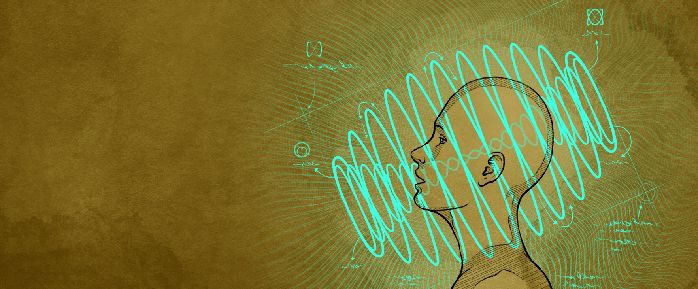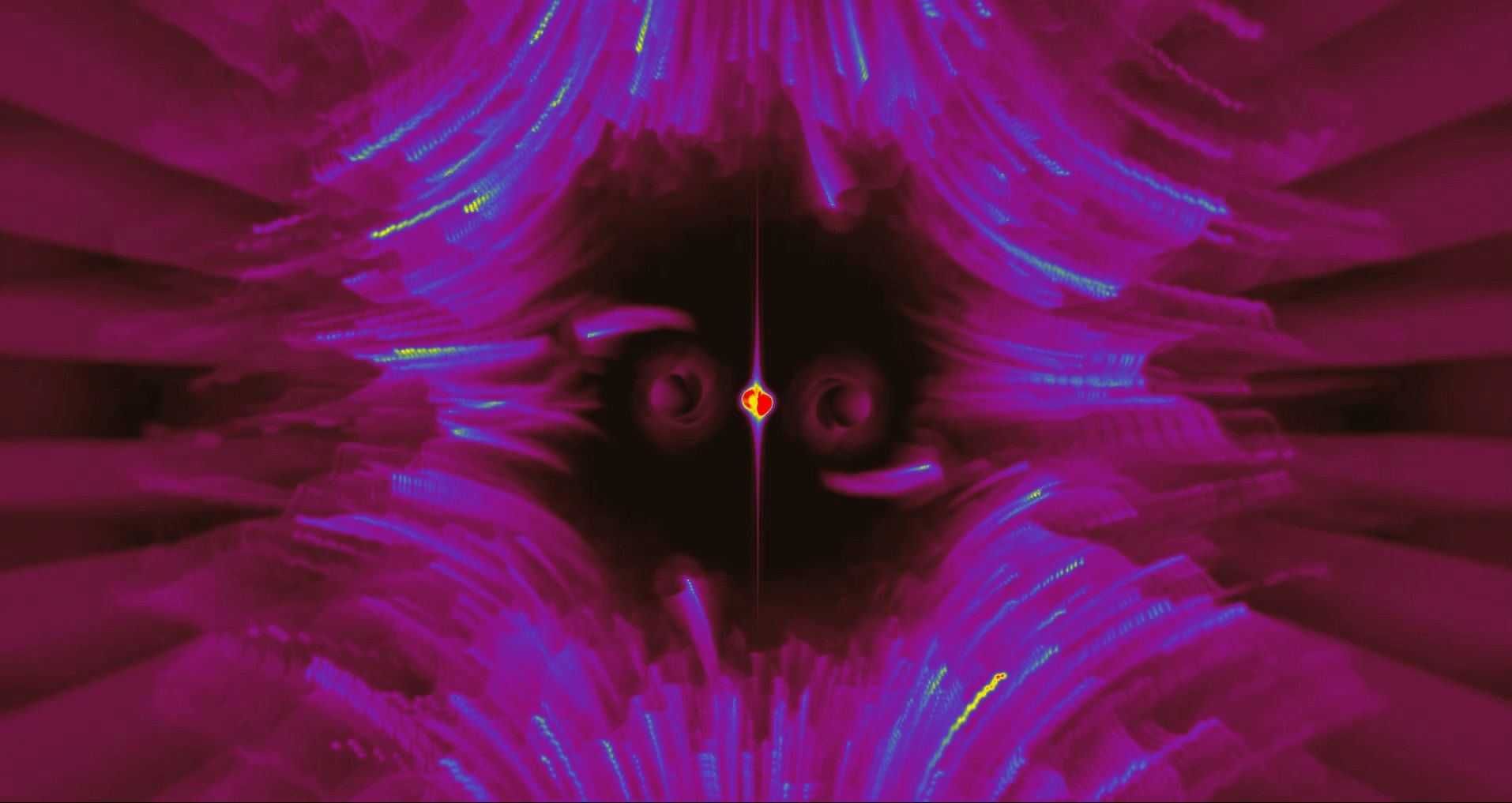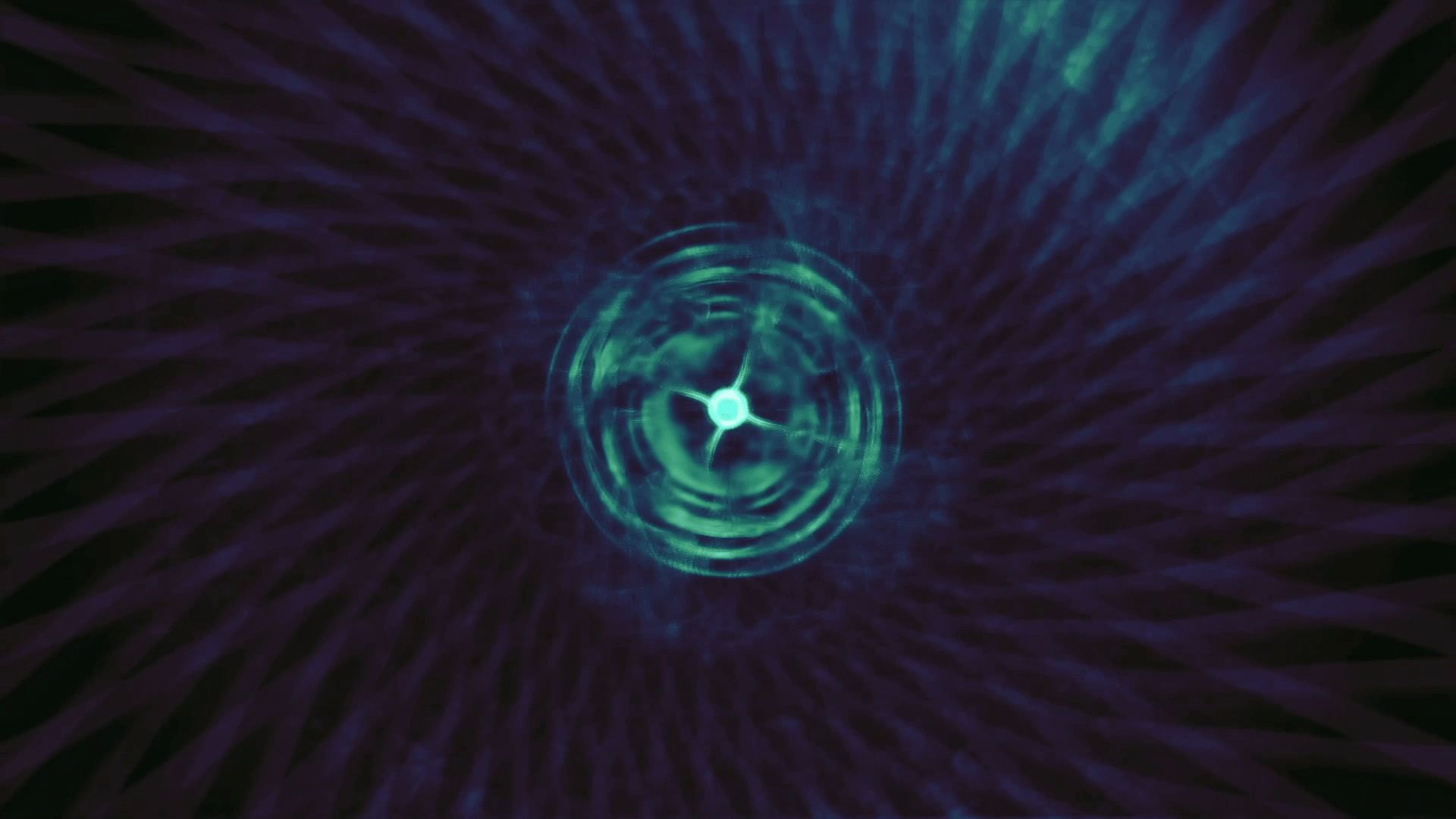Everything is stress and broken systems, or at least that's how it can seem. Daily life even in the best of times can take up every second of the day and leave no room for a single moment of peace, and as anyone who exists on this planet right now might have noticed, it's not the best of times. Peace is hard to come by but it's possible, it just requires discipline and time management skills to attain. Plus maybe a locked soundproof room, depending on one's family situation. While SoundSelf can't help with the soundproofing it's good at providing an hour's peace, letting the user sink into a meditative trance where they can just exist, with no thought and no pressure to infringe on the process.
SoundSelf is a game about meditation, best played in VR but still accessible if all you've got is a monitor. To play it you lie down as comfortably as possible and then vocalize in some fashion. The game takes that vocalization and uses it to generate 3D video patterns, basing then on pitch, tone and volume. The goal is to do a large, gentle inhale and then slowly let it out, with the breathing cycle being a gateway to a relaxed mindset that lets the patterns wash over you. The kaleidescopic images change and shift with each new intonation, flowing from one to the other in a process that keeps the mind in its meditative state without the danger of boredom to help it go wandering. If there's one thing a brain loves it's to be busy at all times and everything in SoundSelf is designed to guide it to a more peaceful state.
I was able to talk to SoundSelf's creator, Robin Arnott, about his game, its creation and influences, plus his history as a game designer. It was an interesting conversation wandering through a good number of tangents, so here it is in full.
[Hardcore Gamer] So SoundSelf is a very different kind of... I can't even really call it a game. It's more of a meditation utility. How did you end up wanting to create something like that?
[Robin Arnott] Well you know, you saying it's not even quite a game is interesting, you know? I'm a game designer and I think of things in terms of game design. I think of things in terms of feedback loop systems. I've never thought of SoundSelf like a tool, although I'm sure people can use it as a tool; I've always thought of it as a game even though it's very different from basically any other game. It doesn't have the same target, it doesn't make the same assumptions that most games do. The gameplay being, you vocalize, and as you're vocalizing the world just responds to you, and that itself is a gameplay loop, the way it responds to you. Unlike most games where you're trying to, say, make a certain thing happen, get to the end of the level, defeat the boss or whatever, SoundSelf is not a goal per se; you're vocalizing while it's listening to you and it's responding to you intimately, and it's more like an artificial intelligence that's dancing with you. But the nature of the dance is one that brings you deeper and deeper and deeper into a deeply meditative state, which is why yes, it can seem like a tool, because it can bring you into a deeply meditative space, but I've always thought of it as a game because to me what games are about are surprise, and novelty, and immersion. It's like games are answering the question "Take me somewhere surprising and show me something I haven't seen before, or maybe challenge me in some way." For me games are like bringing me somewhere and then give me space to act in that.
So not so much "Beat the challenge" as "interact with the..."
With the environment and the world. So I think of things like Everything or Proteus... I mean Proteus was a hit back in the day.
Proteus was beautiful.
Beautiful, beautiful game. Now, when you're playing Proteus, again, Proteus isn't like most games. Proteus is an exploration experience and it's very musical. You're walking around and the whole environment is musical, responding to you in certain ways, and there's something magical about it you know? I think when we're reaching for a goal that's an incredibly powerful way to focus our attention on something and to structure our minds in a certain way. So that creates a structured-mind experience, but if what you want is a surrendered-mind experience focusing on a goal can... I'm not sure the surrendered experience is available if you're focusing on a goal. By surrendered experience I mean the opposite of finely-tuned focus; surrender is release and witness and taking in of all the sensorium and being in the cycle. By releasing a player of an attempt to get any particular place, but giving them a feedback system that is rewarding and engaging and intimate, it can bring you into levels of consciousness or states of consciousness I don't think you can get to if you're focusing on a certain desired outcome like most games are structured.
SoundSelf has had quite a journey, the Kickstarter was back in 2013. What's been taking up the bulk of the time for you?
Because SoundSelf is so unique, I've gained so much respect in making this project for people working in, say, first-person shooters or platformers and just for the fact that we have such an incredible library, almost theology, of domain of best practice for making these certain kinds of games. If you want to make a platformer the amount of things that have been tested and explored already are ginormous, and as a game designer you probably have tried a lot of them so you've seen what works and what doesn't. SoundSelf has taken years and years and years to make because it's trying something radically new; there was very little foundation of other people's work for us to build on top of.
About the only person I can think of would be looking at some of Jeff Minter's stuff.
Yeah, Jeff Minters stuff? Or like light and sound machines? Or meditation practices? I think of meditation practices as being like little games that you play, like if you think of a mantra practice. The game is bring a word to mind, and if you notice yourself being distracted come back. It's a feedback loop, like a game, and the byproduct of playing that game is a certain quality of stillness and a certain shape of attention and consciousness that we might call a meditative state. So that's more the foundation that I'm building this game design off of: meditation, things like group om, things like sound baths, light and sound machines. Soundself draws its lineage more from that place than from game design, however it's the game designer's approach, a game design's discipline put on top of that lineage. Does that make sense?
It does actually. Plus a lot of it helps with accessibility as well, because a more refined tool is great for the people who know how to use it while a game is meant to invite people in.
Exactly, novelty! Which is why I'm not interested in tools or in making tools, because they're boring, frankly. But games have always appealed to me because they draw you in because they are intrinsically interesting, because they intrinsically give you joy. They draw you in for their own purposes. A tool doesn't draw you in for its own purpose, a tool you use to achieve something else. Something that draws you in for it's own purpose, for its own joy of experiencing it, you approach something like that with a more open heart. I think games actually are an extremely powerful medium because they're so inherently joyful, for giving people all sorts of experiences. You're just not going to go to a tool with the same open heart as you are with a game. And so where a tool can take you is limited by the fact that you already have a closed mind when you come to the tool.
I don't have a whole lot more questions to ask but I do want to go on a tangent. One of the earliest games you were known for was Deep Blue Sea...
Deep Sea.
Deep Sea, sorry.
It was a colorless black experience.
Yes! But the problem is very few people got to play it because it was such a focused experience. You had to have exactly the right thing to play it in person. Now that VR headsets are more prevalent and everybody can basically block out the world with the headset, has there been any thought to reviving that?
No, I'm not going to do that. Deep Sea was a beautiful project, a terrifying project, and I loved working on it and I loved making it. It's just like I've moved on as an artist, and so for me to go back to that project and try to revive it, like absolutely that would work, I'm sure it would work in VR, but I'm super-interested in transcendent states of mind. SoundSelf doesn't require VR. You can play it in a darkened room on a screen. It's amazing! If we turned off the lights in here and turned on that screen you could just blast off with it. But Deep Sea, I don't think I'm ever going to revive that. That kicked off my journey into the game design discipline, and my interest in sensation, in using the body and the breath and so on...
For your readers who don't know, Deep Sea is a horror game that the player has to wear a gas mask, and the gas mask blinds them, they can't see through it, and it also restricts your breathing. There's a monster somewhere out there, and the monster's trying to get you and you have to shoot down the monster before it comes and gets you. The only way to do that is to hear where the monster is, and it only makes a noise every fifteen to twenty seconds. So the optimal strategy for playing that game is to hold your breath for as long as you can and listen very carefully. So somebody actually fainted playing it, and a lot of other people got s***-scared.
So that began my journey into "Ok, what happens when we bring breath into an interactive system?" Like breath work does, or breath meditation. And suddenly, when you bring breath in, the whole body is in play, and with the whole body in play you can create a much deeper experience with just the mind and the fingers, fingers being the control mechanism. SoundSelf answers the question for me, "Where can I take this technology, be it VR, be it just on the screen, without scaring people? How can I really immerse people, but immerse them in the sensation that relieves them, or gives them a sense of bliss?" SoundSelf kind of shoots an arrow at bliss and for a lot of people it hits it.
Ok, and one last question. With SoundSelf having taken so long, are you ready to wrap it up and do you have ideas for more things after this, just waiting to bring them forth?
It's inevitable that we're going to be using this technology for mind-altering experiences and my interest now is bringing more mind-altering gaming experiences into the world and helping other developers who are thinking about the technology in this way to bring their unique consciousness-shifting experiences to the players who would most want to experience them. Be that in their living rooms, be that in arcades, be that even in spas and float spas. We're looking at getting SoundSelf integrated into float spas, which is like sensory deprivation chambers. There's a huge potential for transformative gaming, is what I call it, and I'm shifting gears from wearing my designer hat to wearing my businessman hat and seeing like "Ok, how can I help facilitate and create the business infrastructure so that the gaming world can be full not just of beautiful narratives, and surprising experiences, and high octane experiences, but how can we also create the infrastructure to support transformative experiences? Experiences that take you out of your idea of who you are and your identity, and give you an experience that's so... let's say transcendent that you come out of it changed." We're looking at a bunch of different games and seeing how can we help bring these to people and how can we help bring money to them so that they can be as good as possible and meet players' expectations. Players have high expectations. Making a tool, people use tools their expectations generally aren't as high as gamers' expectations are, for how polished an experience is. So helping these people make polished, polished, polished experiences and bring them to the market.
After that it was time to put on the headset and give SoundSelf a try, but post-experience we chatted a bit longer, with one last question from Robin that I couldn't quite answer properly at the time but certainly warrants a followup - why would a site called Hardcore Gamer be interested in a game like SoundSelf? The answer is because the "hardcore" in the site's name is about the people who love gaming, not the things they play. It took seven years of dedicated effort to create a game based around a unique breath-based control scheme that cycles into video feedback to induce a meditative state in the player. How could that not fit under the site's banner?
https://www.anrdoezrs.net/links/3607085/type/dlg/sid/UUhgUeUpU16276/https://www.youtube.com/watch?v=zuvDa1Q45Qo





